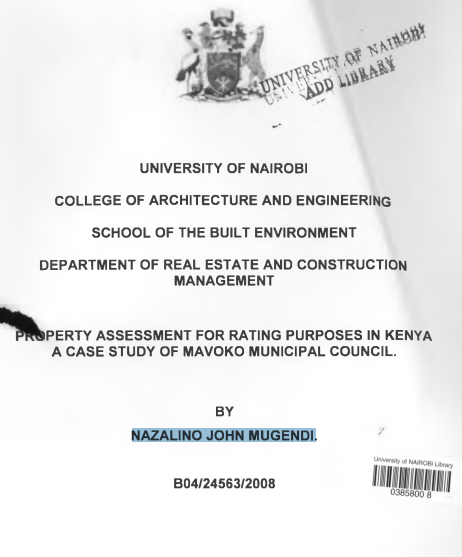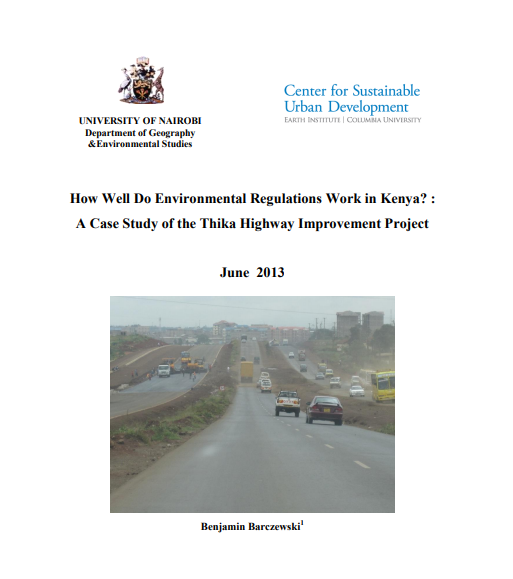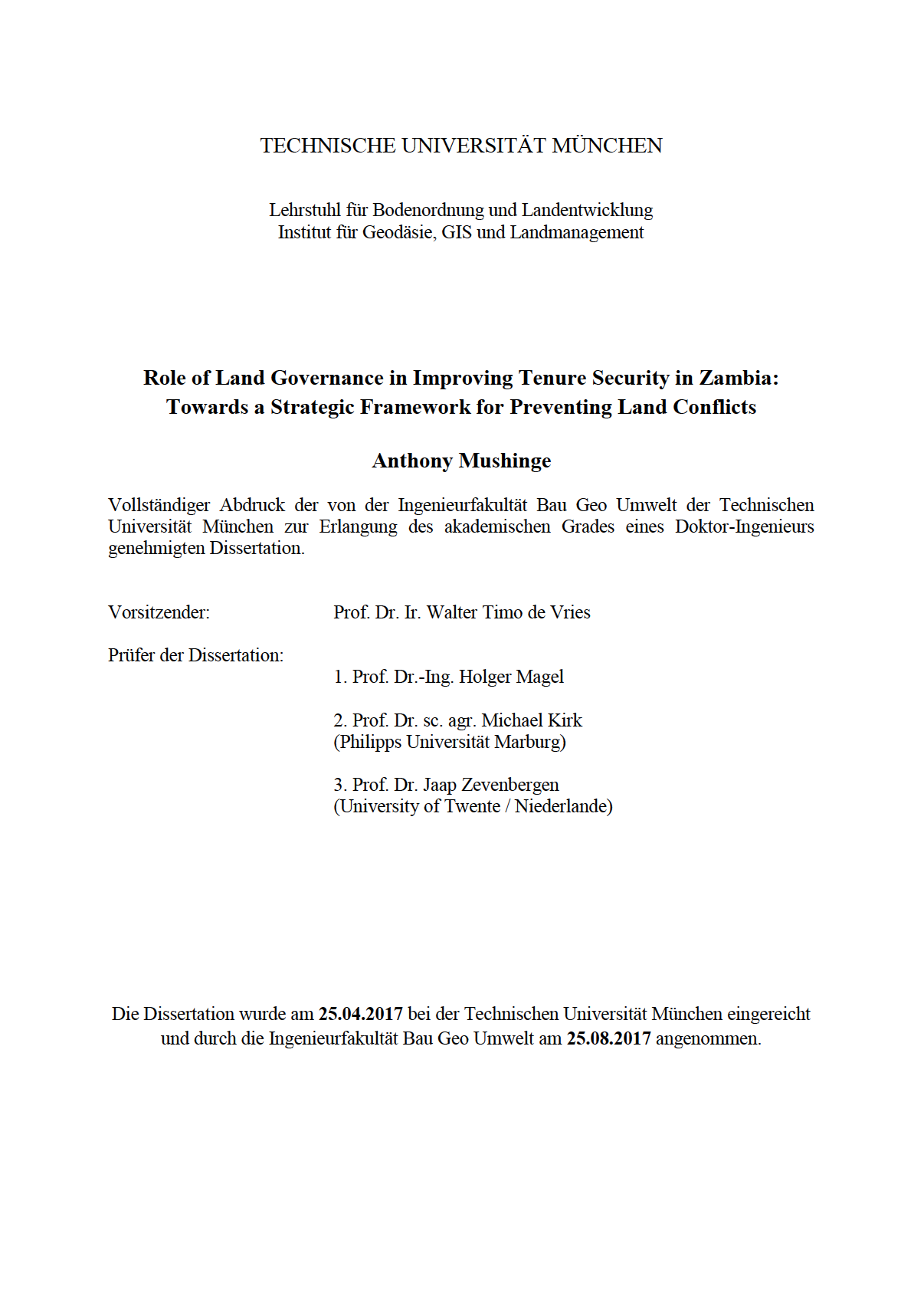Property assessment for rating purposes in Kenya: A case study of Mavoko Municipal Council
Property assessment for rating purposes has been practiced in Kenya for over a century. Property taxation is a major source of local authority finance though its full potential has not being realized. The revenue received from property taxes is used for provision of services to residents within a local authority’s jurisdiction Lack of realization of full potential of the property tax is blamed on inefficiencies in the local authorities as a result of poor property tax administration.





